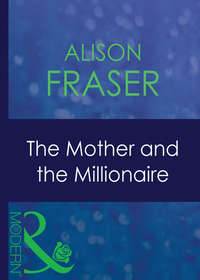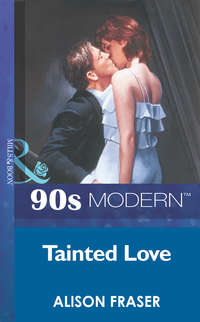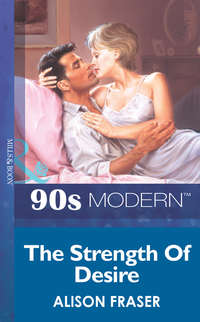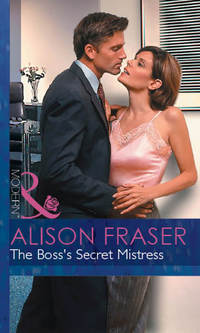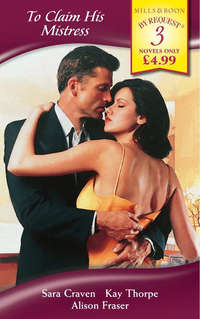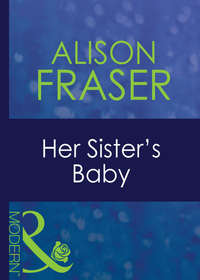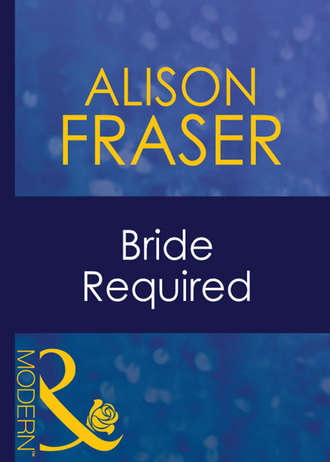
Полная версия
Bride Required
He nodded. ‘For the last couple of years.’
He sounded emotionless about it, but how could he be? It must have been a scene from hell.
‘Are you going back?’ she asked.
He shook his head. ‘I have no plans to do so.’
Dee met his eyes briefly and imagined she saw in them some of the shadows of that hell. It was just a fleeting impression before he looked away, but she knew without being told; she mustn’t ask any more.
‘My contract with the aid agency has just run out,’ he continued. ‘I’ll be taking up a research post at Edinburgh University in the autumn.’
Dee absorbed this information, then said, ‘Okay, give me the time of the train and we can meet at the station.’
It was a moment before he realised quite what she’d said.
‘You’ll do it?’ Her capitulation had caught him by surprise.
Dee wondered if she really was mad, even as she nodded, ‘Yeah, why not?’
‘Great.’ Baxter suppressed any doubts and allowed himself some satisfaction.
Dee decided it was time to go before she changed her mind. ‘If you don’t know times and things, you can phone Rick in the café. He’ll pass on a message.’
He glanced towards Rick, who was now leaning on the counter, perusing the racing pages. He didn’t look the reliable type.
‘Wouldn’t it make more sense for me to pick you up in a taxi?’ he suggested.
‘You mean turn up at the squat?’ She was horrified by the idea. ‘No, thanks. I’ll meet you at the station or the deal’s off.’
Baxter realised she didn’t want him to know where she lived. He supposed that was fair enough from her angle.
He went into his pocket again and found his passport, still there from when he’d flown in a few days ago. He handed it to her.
Dee checked it over, as he’d intended. It came open at the back pages; they were stamped with the names of a dozen countries, mostly in Africa. She flipped to the front and glanced at his picture. It was an old passport, showing a picture of him from some years ago. It looked like him, only without the current signs of age and experience. She checked the other details. Name: Baxter Macfarlane Ross. Occupation: Doctor. Birthplace: Bangkok.
‘Bangkok.’ She read it aloud. ‘As in Bangkok, Thailand?’
‘My parents were missionaries,’ he explained. ‘They happened to be trying to convert South-East Asia round the time of my birth.’
‘So where exactly were you brought up?’
‘Lots of places, but Scotland mainly. That’s where our grandparents lived and that’s where we were sent to school.’
‘Boarding school?’ she guessed, and he nodded in response.
It explained a lot. He had no real accent, despite the fact she’d made a joke of it earlier. Instead he sounded neutral, almost as if he was a foreigner who’d learned to speak perfect English.
‘So, do your parents live up in Edinburgh?’ she asked, and felt a measure of relief when he shook his head. She didn’t fancy playing the blushing bride to some holy rollers who probably still believed in marriage.
‘They died when I was twelve,’ he added briefly.
‘Sorry,’ Dee apologised for her mean thoughts.
‘It was a long time ago.’ He dismissed any need for sensitivity. ‘And I didn’t know them well… My sister lives near me.’
‘Oh.’ So she was to meet some of his family. ‘Are you and your sister close?’
‘Yes and no. I’ve spent a large part of my adult life abroad… What about you? Do you have any brothers or sisters?’
‘No, I’m a little emperor.’ She’d read the expression in a magazine.
‘A what?’
‘An only child. It’s what they call them in China, now they operate a one-child policy… Apparently couples in Britain are also opting to have a single child so they can give them everything.’
‘Is that what you were given…everything?’ He wondered once more about this girl of contradictions.
‘Of course,’ she answered in ironic tones. ‘As you see, I dine at the Ritz, buy my clothes from Harvey Nichols and live in a darling little mews house in South Kensington.’
He gave her an impatient look. ‘I take it that means no.’
Dee shrugged. He could take it how he wanted. In truth she had been spoilt—materially anyway—until the day she had run away in her state-of-the-art trainers, designer jeans, and the baseball jacket that had come with a three-hundred-pound price tag and had fallen apart within weeks of her hitting the London streets.
She handed back his passport, and he said, ‘Now you know who I am, perhaps you could trust me with your address.’
‘Just because you’re Dr Ross?’ She pulled a face, still unimpressed.
‘Point taken.’ He took one of the cheap paper napkins Rick had tossed down in front of them and wrote something on it.
‘The Continental,’ Dee read. ‘Sounds posh.’
He ignored her, writing down the nearest tube station and precise directions on how to find the hotel. ‘Meet me in the foyer tomorrow at nine o’clock, and we’ll go shopping for suitable clothing. Okay?’
Dee nodded and put the napkin in her jacket. She didn’t meet his eyes. If she had, he might have realised she was already having second thoughts. Girls who met up with strangers, however respectable-looking, were asking for trouble.
Baxter watched her as she got up, issued brief thanks for the meal, and, gathering her possessions and dog, made for the door. He was no fool. Chances were he would never see her again.
Dee walked quickly, checking behind her a few times, but there was no sign of him. He trusted her. He actually believed she was going to meet him.
‘Mug,’ she muttered aloud, but it didn’t stop her feeling guilty. She hadn’t meant to lead him on. It was his fault really. It had sounded so attractive—sleeping in a clean bed, eating good food, earning money for virtually nothing.
But nothing was for nothing in this life. She knew better. She thought of her stepfather—respected consultant, charming host, generous father. For a while, at least, until he’d looked for the pay-back.
Dee put a brake on her thoughts. She wasn’t going to get bitter. She wouldn’t let him ruin her life. She wasn’t like the other girls, running away from a lifetime of abuse. Much of her childhood had been happy, and she still had hopes of a future better than her dismal present.
She checked behind her once more before she veered towards the wasteland which surrounded the maisonettes. All boarded up, they looked deserted, but she knew that several had been turned into squats. Hers was at the end of the block and two flights up.
She looked along the balcony and down below, checking she was alone, before dislodging the loose boarding at the bottom of a window. Then she squeezed through and dragged Henry after her. She replaced the boarding and used a brick to hold it in position from the inside. She kept a torch in her rucksack, and used it long enough to locate the candles and matches hidden under the rotting sink-cupboard.
She slept in a back room, where the last occupant had abandoned an old mattress. It was stained and musty, but better than the floor. Dee had her own sleeping bag, which she washed with her clothes at the launderette when she had any spare money. She still never felt clean.
She’d lived like this, in one squat or another, for three months, and she’d begun to get used to it. She supposed it was meeting Baxter Ross that had made her re-evaluate. She went to the toilet and looked in the cracked mirror above the sink. A gaunt face with hollow eyes looked back at her. Once she’d been considered pretty, and was vain enough to wonder if anyone would see her as such again. Or had her looks gone, along with her middle-class attitudes? Blown away by insecurity and desperation?
She thought of what Baxter Ross was offering. Right at the moment it was the only chance of a future she had. Perhaps she was crazy to turn it down. It would mean living a lie, but so what? She had watched her mother doing that for years.
Had her mother pretended with her father, too? Dee wasn’t sure. She had seemed devastated when he died, but within months had been going out with Edward Litton, a consultant at the hospital.
At first Dee had resented it, out of loyalty to her father. But, as time went on, she’d realised her mother couldn’t cope on her own. Edward had seemed to accept her so she’d accepted Edward, and had been a gawky-looking bridesmaid at their wedding.
When had things changed? It was hard to pinpoint, but it seemed, on reflection, that cracks had appeared in the marriage quite quickly. Though beautiful, her mother needed constant reassurance of the fact, and although seemingly vivacious in company, was subject to depressions. Dee’s father had been supportive, but Edward was a different kind of man, and his impatience, as well as his disappointment, was evident.
At times Dee had actually felt sorry for him and had feared he might leave. Feared, because at fourteen she had been as selfish as the next teenager and hadn’t wanted responsibility for her mother’s happiness.
But they’d papered over the cracks and continued to present an idyllic front to the rest of the world. Dee had been part of the conspiracy, then. Grateful that he’d stayed, she’d grown closer to Edward, and he had seemed fond of her, too.
It was Edward who had begun to realise she was growing up and had given her money for trendy clothes rather than the juvenile outfits her mother had bought to keep her looking about ten—which had been difficult when she was already way past adult height by fourteen and filling out by fifteen. It was Edward who had allowed her to go to her first disco and had laughed when she’d arrived home a little tipsy. Edward who hadn’t overreacted to her minor teenage rebellions of smoking cigarettes and bunking off school. And Edward who’d argued against boarding school, claiming that, just going into her final GCSE year at sixteen, Deborah was far too old to adapt.
Only this time her mother had stood her ground, and Dee had been dispatched to a girls’ school in Hampshire. Dee had minded going, but had settled in surprisingly easily. After the tensions at home, the school regime had been almost relaxing.
Still, she’d looked forward to the Christmas holidays, and Edward and her mother had both seemed pleased to see her. There had been the usual seasonal parties, and Edward had paid for several new dresses—including a white mini-dress that showed off her endless legs. She had been self-conscious in it at first, but had worn it at their New Year party and felt tremendously grown-up.
Perhaps she had looked it, too, because no one had objected to her drinking glasses of the wine being passed around. She had been merry rather than drunk, and had danced a lot with an older boy called James. They had ended up kissing in the summerhouse outside. Deborah had enjoyed the kisses and even allowed some minor petting, but she’d had no plans to take things further.
Edward had drawn other conclusions when he’d found them in a passionate clinch. He’d come the heavy father and sent the boy packing, then he’d turned on Dee. She remembered repeating, ‘Nothing happened,’ over and over, but he hadn’t really been listening as he’d grabbed her arm when she’d tried to leave. It was only later she had understood: he’d been drunk, and mean with it.
At the time she’d felt only shame as he’d accused her of being a slut and suggested she’d been ‘begging for it’. There had been more of the same, but, naively, she hadn’t been frightened. Even at that point she’d still assumed he was acting like an irate grown-up. Then the bile about her mother had begun to spill out, and effectively brought their father-daughter relationship to an end.
‘Please.’ She tried to pull away as he regaled her with details of his empty, sexless marriage.
‘Well, at least we know you’re not frigid, little Deborah,’ he went on relentlessly. ‘Not so little, either, now…’
His eyes lowered to her burgeoning breasts, outlined in the brief, tight dress, and the hand that had gripped her arm began to smooth over her bare skin.
Dee fought panic and the desire to be physically sick. This was a nightmare. In a moment, they would both wake up and everything would be as before.
‘Let’s go back to the party, Edward, please…’ Her face was white with shock.
‘Why? So you can let that boy paw you again?’ Edward’s laugh was humourless as he blocked her move to the summerhouse door. ‘Sweet sixteen and obviously dying for it, the way you walk around the house in your shortie nightdresses.’
Dee shook her head and kept shaking it, denying provocation, denying she wanted this, denying his right to do it as he clamped his arms round her and forced his mouth on hers, ignoring her resistance, his teeth cutting into her lip, his tongue a violation. She resisted, and kept resisting, twisting and fighting, kicking and squirming, pushing at his chest until finally, somehow, she was free.
She turned and ran blindly to the house. The party was still in full swing and few noticed as she burst inside and made for the toilet, bolting the door before being violently sick in the bowl.
Dee had intended to tell her mother later, but Edward beat her to it. In his version she had drunk too much and had been throwing herself at everybody, including himself. He made a joke of it, then dismissed the incident as normal adolescence. Her mother didn’t question it, and when Dee tried to say Edward had kissed her she refused to listen.
Now Dee lay on her mattress in the dirty squat and recognised it as the night her childhood had ended. She hadn’t run away immediately; she hadn’t been brave enough. She’d wanted to trust Edward’s promises that it would never happen again, so she had. Until the next time two months later. And the time after that at half term. And so on.
Each time he went a little further and each time she became more locked in the awful conspiracy of silence because she hadn’t blown the whistle loudly enough that first night.
Each episode of kissing or touching or accidentally brushing against her brought them closer to the day he would finally rape her. She threatened to tell on him, but never did. Who to tell? Her mother, who popped a pill at the least upset and was on another planet most of the time? Or family friends, who admired Edward for taking on a ready-made family? And, of course, by not telling she reinforced the lies her stepfather was telling himself: that she wanted him the same way he wanted her.
When he arrived mid-term to take her out for a surprise lunch, Dee wanted to refuse, but what could she say when he sat in the headmistress’s office playing model stepfather? And who else could see what lay behind his smile? Not Mrs Chambers, smiling back as good old Edward charmed and smarmed his way into her confidence. Not her best friend, Clare, who read too many teen magazines and thought her stepfather sexy.
So she went upstairs for her jacket and came down the hard way, throwing herself from the landing. Dramatic, possibly, and certainly painful, as the sprained ankle she’d intended escalated into a torn ligament in her knee. She also had to suffer Edward playing the concerned father and caring doctor, until she wanted to scream at them all, Open your eyes. See him for what he is!
But still it was worth it. A trip to the local hospital took precedence over the lunch.
It was that visit which decided her. She waited until her knee mended and the exams were over, then bought a one-way ticket to London. She stayed in a cheap hotel, unable to find work or the bedsit she’d vaguely planned. After a month and a half her money ran out, and she ended up sleeping in a shop doorway for three nights until the police picked her up, and, not believing she was sixteen, located her on a register of runaways and called her parents.
They came to collect her. Her mother was distressed but forgiving, while Edward just seemed relieved. He walked up to her and hugged her as he had in the old days, with a warmth that was natural and fatherly, and promised her everything was going to be fine. After three nights’ sleeping rough and being terrified, Dee would have believed the devil himself. She arrived home in time for her seventeenth birthday and was lavished with presents.
For eight months Edward kept his promise. Dee didn’t give him much choice to do otherwise, returning to boarding school in the autumn, then spending much of the Christmas holidays on a skiing trip. Then she made the mistake of going home for Easter.
At seventeen, and confident, she imagined she could handle anything, but she was wrong.
She had no real warning. That was the trouble. Her mother had a headache, but that wasn’t unusual. Dee sat down to lunch with Edward and he was in great form, relating amusing anecdotes about hospital life. She didn’t really notice him filling and refilling his glass. She wasn’t aware of a mood change until it was too late…
Dee shut her eyes now. She didn’t want to relive it. What had happened had seemed unreal, but was no less disturbing because of it. She had panicked and she had run, and this time no one had come looking for her.
She had no home now, no family, no past. She could do what she wanted, be what she wanted. She could marry Baxter Ross for ten thousand pounds and not give a damn.
Why not? Would it be so hard to be Mrs Baxter Ross?
She wouldn’t have to sleep with him. She probably wouldn’t have to eat with him either. Talking might not even be required, unless they had an audience.
Ten thousand pounds, and she could lie in a clean bed without listening for every sound in the dark, eat without worrying about where the next meal was coming from, live without fear constantly in the background.
In fact, even a cynic like Dee could see it—Baxter Ross just had to be a dream come true!
CHAPTER THREE
WHAT was the opposite of a guardian angel? A jinx, Dee supposed. Whatever it was, she had one.
Having tossed and turned for most of the night, she slept when the first rays of light squeezed through the boarded windows and only woke when the air was warm and the sun high in the sky. She didn’t need a watch to tell her she was already far too late. She would never reach the Continental Hotel by nine.
She went all the same, with Henry in tow, and used her last money on the fare. The hotel was posh and exclusive, and its doorman wouldn’t let her past the steps. Reluctant enquiries were made. They confirmed a Dr Ross had been there—had being the operative word. It was her fault for being late, but she cursed him all the same. Couldn’t he just have waited?
She drifted off to the nearest tube station and, without a flute to play, did what she hated and begged outright. Her dismal face drew little sympathy, but enough for her fare home, tea and a roll at Rick’s and two tins of dog food.
She made her way home, thinking the day couldn’t get worse, but it did. She saw the caravans first, parked at the near end of the estate. For a moment she thought they belonged to gypsies, until she saw the vans on the other side and was whistled at by two workmen swilling beers on a caravan step. The developers were moving in.
She raced along to her maisonette, thinking she might already be too late to fetch her stuff, but the flats still stood, doors and windows now plastered with orders to quit and a demolition date two days hence.
She’d known it would be soon. When she’d found the place there had been other squatters around her, but most had since disappeared. She rounded the corner of her block to find the couple from downstairs passing stuff out through a gap in their boarding.
They claimed to have somewhere to go and invited Dee to come along with them, but Dee felt safer on her own.
She went up to her flat and was relieved to find the boarding still in place. She helped Henry in first, because he was too stiff to manage on his own. She collected her things together, ready to move on in the morning, then sat on her dirty mattress, trying not to think of the chance she’d let slip by.
It was some hours later when she heard noises again. They were distant at first, probably coming from the far end of the block. She heard the sound of splintering wood. A board being moved. Perhaps it was someone like herself, looking for a place to sleep. Usually she laid low, waiting for whoever it was to settle.
This time, however, it seemed they were checking every flat, searching for something or somebody, and Dee no longer felt like sitting tight. So she slipped through the gap in the boarding and landed soundlessly on the balcony below, then tried to haul Henry through, but he kept backing away. Having been reluctant to wake, he was even more reluctant to go walking.
Dee heard footsteps directly below her and, panic rising, made another grab for his collar. Unfortunately Henry began to whine and scrape and generally protest at the idea of going through the narrow gap for the second time that day. She leaned further and Henry disappeared altogether in the direction of the bedroom.
Dee might have climbed back in, but the footsteps were no longer below her; they were echoing up the far stairwell. As she withdrew from the window her jacket caught on a nail. The sleeve ripped slightly, then held fast. Rather than rip it further, she shrugged out of it and left it hanging as, in panic, she took to her heels along the balcony towards the other staircase.
A voice called out, meaning to halt her, but all it did was make Dee’s heart hammer with more fright. This was no kid out to vandalise a derelict building, but a full-grown man, and he was after her, his footsteps thundering in pursuit as she jumped three steps onto the landing, then stumbled her way down the next flight.
She landed hard and felt a jarring in her knee, but she kept going. She made for the open wasteland and the cover of darkness. But he was right behind her, running hard, gaining on her, closing in as her knee began to give out. She kept running until the second he grabbed at her, then she cried out in fear and rage as she went crashing to the ground.
Hard male hands kept her there. Face down in weeds and muck, she waited for her worst nightmare to begin. Seconds ticked by in her head before her assailant dragged her round, and it was the longest moment in Dee’s life. Nothing, not even her experiences with her stepfather, had prepared her for this.
Then he spoke, and fear dissolved in an instant. Relief followed, but was quickly sidelined by temper.
She lifted a hand and struck at him.
‘It’s me…Baxter.’ He warded off the blow.
‘I know it’s damn well you!’ she screamed back at him, and took another swipe.
He dodged that one, then grabbed at her arms before she could hit him again. ‘I’m not going to harm you.’
‘No, just break my leg in a rugby tackle!’ she shot back.
‘I was trying to grab your arm,’ he claimed, ‘but you halted mid-flight and I fell with you… Sorry.’
‘Sorry!’ Dee exploded at this utterly inadequate word.
He lifted his shoulders. ‘What else can I say?’
‘Try goodbye,’ snapped a still angry Dee, ‘but first could you bloody well get off me?’
He considered it for a moment. ‘Provided you promise not to attack me again.’
Her attack him? Dee stared at him in disbelief. Unfortunately, being flat on her back, she was in no position to argue.
‘Okay,’ she agreed.
‘Good.’
‘Come on then.’
Dee wasn’t scared of him any longer. There was something so calm and rational about this man, it was hard to imagine him as a threat. But she was still lying beneath him, conscious of the weight of his body on hers.
‘I’m waiting,’ he drawled.
‘What for?’
‘Your promise.’
God, he wanted her to dot the ‘i’s and cross the ‘t’s.
‘I promise not to attack you,’ Dee ground out through clenched teeth.
Baxter caught her eyes, a stormy blue spitting fury. He released her arms slowly and half expected another blow. But perhaps she wasn’t quite that foolish. She remained still as death beneath him, and he levered himself away. He brushed earth and undergrowth from his clothes before offering her a hand.


